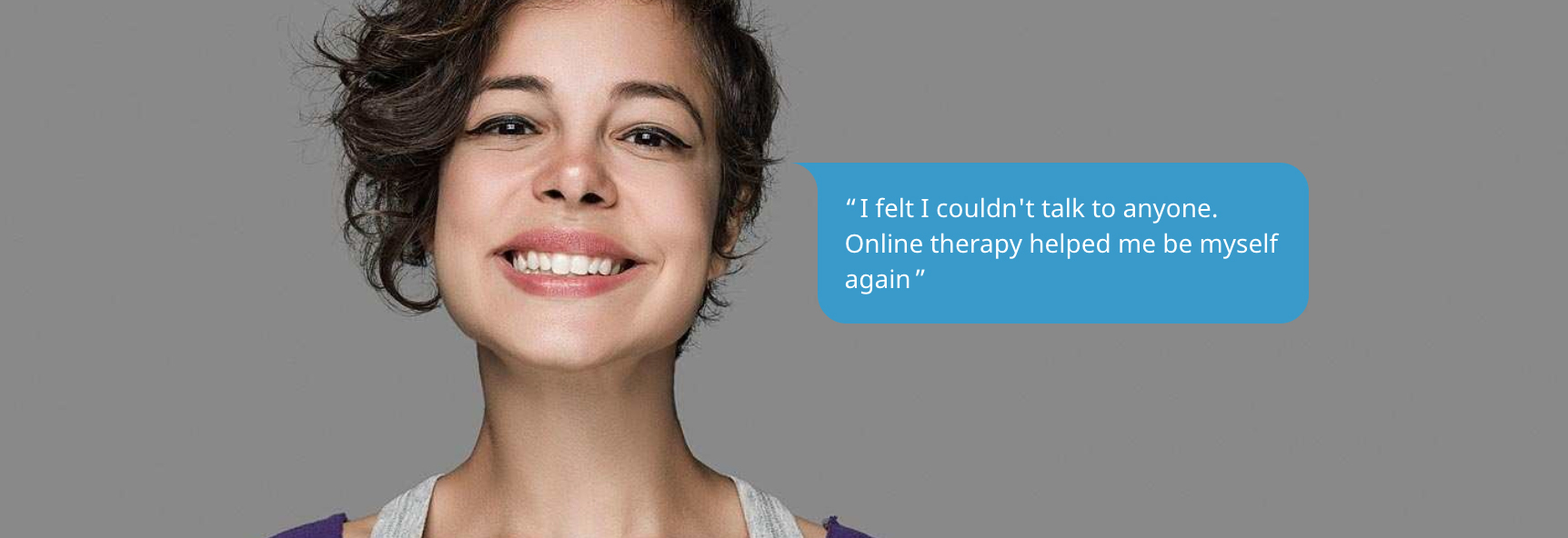Sarah Bateup, Chief Clinical Officer at Ieso Digital Health, introduces the first in a two-part series of articles demonstrating how combining mental health treatments with physical treatments can have a positive effect on the overall wellbeing and outcomes for patients
Approximately 3.2 million people have a diagnosis of Type 2 diabetes in the UK. It is estimated that this number is likely to rise in the next 10 years. People who have Type 2 diabetes are twice as likely to have a common mental health disorder such as anxiety or depression. Anxiety disorders and depression can make it harder for people with diabetes to manage their condition effectively and this can lead to further complications and poor quality of life.
It is recognised that people who have diabetes and a co-morbid mental health disorder, respond well to evidence-based psychological therapies such as cognitive behavioural therapy (CBT). However, most of the research studies, to date, have focused on the provision of face-to-face CBT. While highly effective, there is an insufficient provision of CBT to meet the needs of the numbers of people who require it. Other methods of delivering effective interventions are required.
Online methods
Online guided self-help methods are one response to the lack of availability of CBT. The shortage of therapists who are trained to deliver psychological interventions for patients with a long-term condition, such as diabetes, is a significant issue.
Guided self-help methods do not require specialist clinicians to deliver a psychological therapy as they rely on web-based materials that patients can read in their own time. Patients may also receive occasional support by phone or email to help guide them through the online reading materials.
Guided self-help methods have been demonstrated to be effective, although high drop-out rates have been reported.
The Ieso Method
One online method, which is significantly different, has been developed and implemented by Ieso Digital Health. This method uses the British Association of Cognitive & Behavioural
Psychotherapy (BABCP) accredited CBT therapists to deliver CBT, online, using synchronous written communication.
Patient and therapist communicate through typed conversation in real time. The transcript of each therapy session, conducted in this way, is encrypted and held on a secure site for both the therapist and patient to access at any time. An example of a CBT session conducted using this method can be seen in Figure 1.
One aspect of this method that is novel and unique is the availability of therapy transcripts for every therapy appointment attended. This is the first time that it has become possible to examine live therapy material, at volume, in a clinical setting.
In addition to a weekly CBT appointment, the therapist and patient can also communicate with each other in between therapy appointments. This asynchronous communication can be used to amplify the effect of CBT by encouraging the patient to focus on between-session tasks, goals and consolidating learning that has taken place during a therapy session. Contact with a therapist between appointments tends to be less common in traditional, face-to-face, CBT.
The Ieso Method has demonstrated equivalence to face-to-face CBT in the treatment of over 20,000 with common mental health disorders. Patients are equally as likely to recover using the Ieso Method. In addition, this method enables patients to access effective interventions at a time of their choosing and therefore widens access to psychological therapies. This ability to access therapy from home at any time of day has clear advantages for patients with a long-term condition, such as diabetes.
While it is established that the Ieso Method is an effective and convenient way to deliver CBT, this method has far more to offer. When you put a computer between a CBT therapist and a patient, you develop a data set that has the potential to reveal the answers to many important questions and these answers will help drive up the standards of care. For the first time ever, it has become possible to understand what the best therapists are doing with their patients and, conversely, what the least effective therapists are doing.
The possibilities for future care
The possibilities for future care are ground-breaking. The Ieso Method is basically a standard trial platform, whereby Ieso’s clinicians, researchers and scientists are able to systematically answer a series of research questions including:
- Why are some CBT therapists better than others?
- Why have recovery rates for anxiety and depression stagnated?
- How do you increase recovery rates?
- How do you help therapists to be the best they can be?
- What are the most effective treatment protocols for depression?
- How can you enable patients with a long-term condition to cope with and manage their condition?
- How do the therapist’s beliefs impact on the delivery of treatment?
- How do you personalise psychological medicine?
The team at Ieso are beginning to answer these questions both in the lab and in clinical settings. The learning that is drawn from research questions like this can quickly be implemented in clinical service delivery enabling more patients to benefit.
Ieso is currently working on a research trial of 1,000 patients who have Type 2 diabetes and a co-morbid common mental health disorder. Ieso will train a cohort of its 500 CBT therapists in diabetes-specific CBT. The therapists will treat patients who have a diagnosis of Type 2 diabetes and a co-morbid mood disorder. The research questions for this study are:
- Does the Ieso Method demonstrate equivalence to face-to-face CBT in relation to recovery rates for anxiety and depression and reduction in diabetes distress?
- Does the Ieso Method enable patients to increase self-efficacy in managing their diabetes as measured by the Patient Activation Measure (PAM)?
This is the first study that investigates the efficacy of online, therapist-delivered CBT specifically for patients with diabetes and a co-morbid mental health condition. The research is timely and necessary now, particularly if we are to begin to tackle the dual problem of a lack of availability of CBT and an increase in the prevalence of diabetes and mental health disorders.
Imagine a world where technology enables everyone to access evidence-based psychological therapy…
Please note: this is a commercial profile
Sarah Bateup
Chief Clinical Officer
Ieso Digital Health
Tel: +44 (0)1223 608 760











